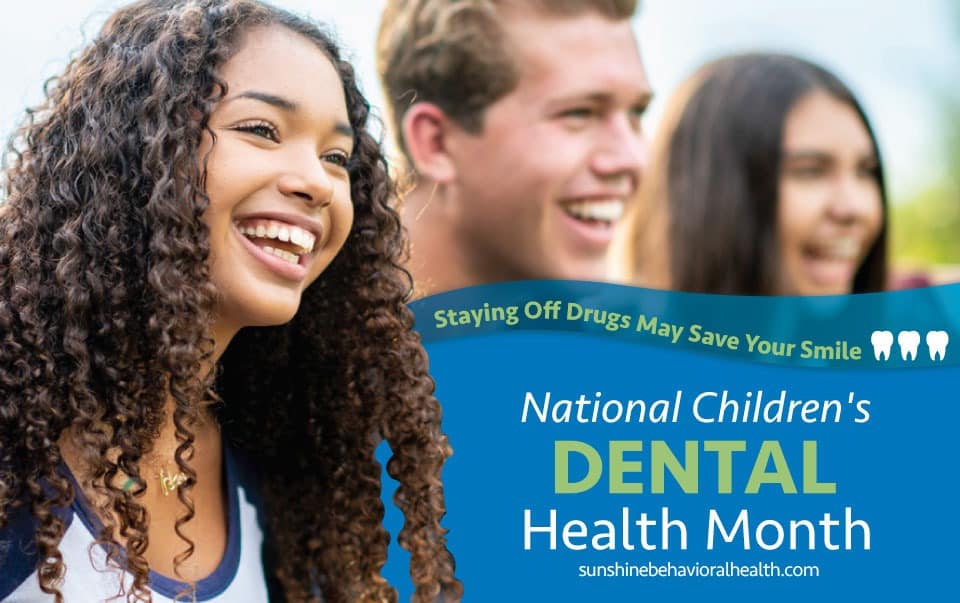
National Children’s Dental Health Month: Saving Your Smile
February is National Children’s Dental Health Month. The American Dental Association promotes it with the goal of instilling a lifetime of good oral health habits. Every year has a theme and for 2020, it’s celebrating the 75th anniversary of fluoridation. Drinking water with fluoride produces fewer and less severe cavities, less tooth decay, a reduced need for dental fillings, and lower tooth loss rates. What’s not so good for teeth? Addictive drugs. A lack of proper dental hygiene paired drug abuse often can make a mess of mouths. Dentists are often in the habit of prescribing narcotic pain medications — especially after wisdom teeth removal or root canals (though that is changing in light of the opioid epidemic). In 2011 the Journal of the American Dental Association said dentists prescribed 12 percent of immediate-release opioids in the United States. Now, more careful patient screenings and pain management alternatives — such as ibuprofen or acetaminophen — are more frequently recommended. Especially troubling is that prescription medications are most abused among children ages 12-13. It should be noted, that this number doesn’t just include what dentists prescribe, but also medicines such as ADHD drugs, stimulants, and benzodiazepines (benzos) that treat conditions such as anxiety, seizures, and insomnia. Drug abuse exacts many costs, including on oral health. Resulting problems may include:- Tooth decay
- Periodontal (gum) diseases such as gingivitis
- Xerostomia (dry mouth)
- Infections
- Bruxism (grinding or gnashing of teeth)
- Tooth erosion
- Tooth loss
A Message From Our CEO
Medical disclaimer:
Sunshine Behavioral Health strives to help people who are facing substance abuse, addiction, mental health disorders, or a combination of these conditions. It does this by providing compassionate care and evidence-based content that addresses health, treatment, and recovery.
Licensed medical professionals review material we publish on our site. The material is not a substitute for qualified medical diagnoses, treatment, or advice. It should not be used to replace the suggestions of your personal physician or other health care professionals.





